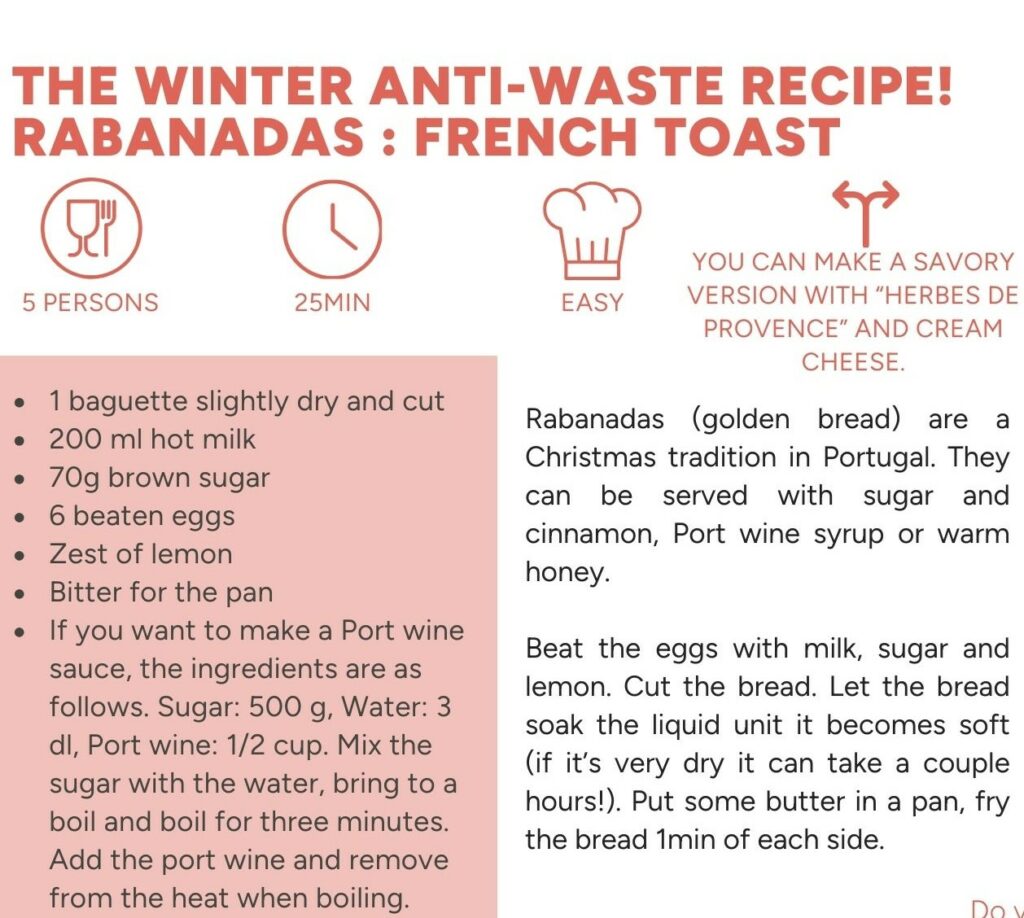


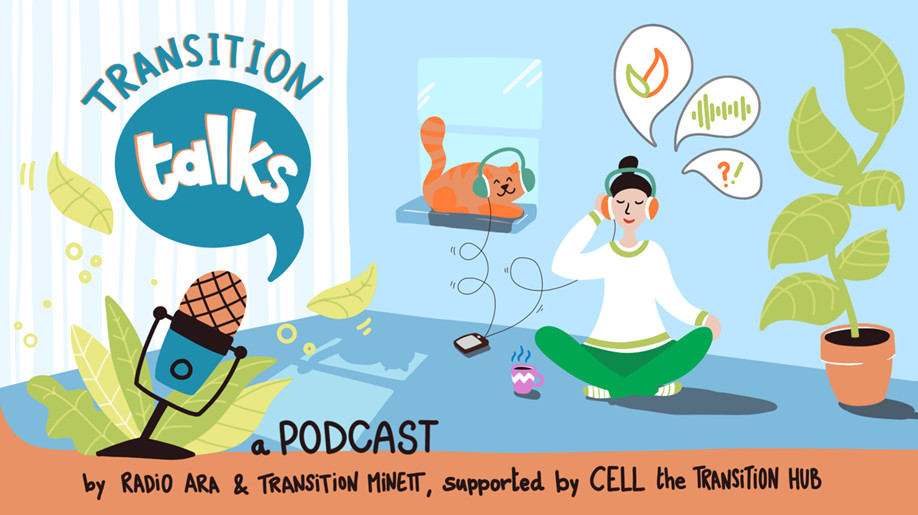
In this episode, Yasmin Labidi (Transition Minett association) talks with Caroline Holz and Miss Bak about circular economy, local economical activities that respect the environnement and about alternative economy.
Caroline Holz is the coordinator at Facilitec in Esch at the Transition Minett association.
She trained as a landscape architect and urban planner, and was involved in the design and construction of public spaces.
Ahoua Bakayoko is the foundor of the project « MissBak » in Luxembourg, a natural cosmetics brand, which is vegan and aimal testfree respectful of the environnment.
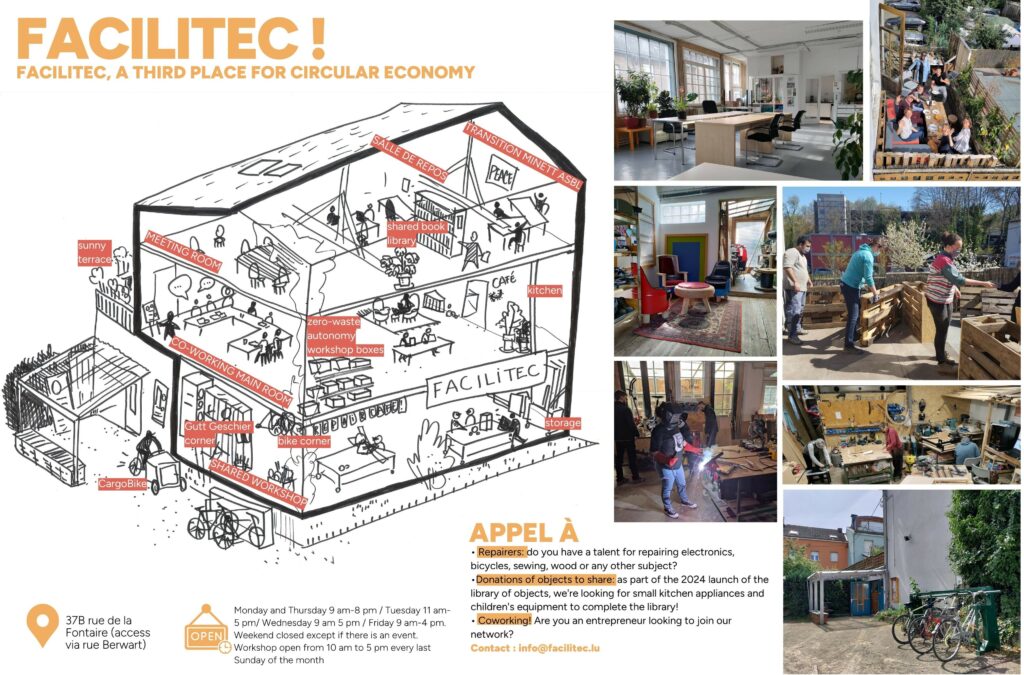
I’m sure you’ve been here many times before, or even come in for a visit, but do you really know what you can do at Facilitec?
Housed in the former Claude Muller carpentry on Rue Berwart, 5 minutes from the train station in Esch-sur-Alzette, the place was renovated thanks to participative workshops and with second-hand materials from the end of 2018 to make it a place dedicated to circular economy. Here we share and give space to initiatives that take in the direction of ecological transition. The 300 m² offered by the building is already a lot, but we’re often looking to push the walls for certain projects: there’s no shortage of ideas! For example, you can come here to learn how to DIY, repair an object, make something, borrow a tool, co-work, meet entrepreneurs committed to a citizen ecological transition, come to an event, meet other citizens, drink a coffee with the Transition Minett asbl team, consult a book on ecology or zero waste, test a more sustainable lifestyle (with a workshop), an alternative mobility solution…
Facilitec defines itself as a “Third Place”, in the sense that it is inhabited by our association (Transition Minett) and a wide variety of users who often cross paths and exchange projects, and who together try to manage the new activities, uses and day-to-day life of the place as best they can.
The idea is to divide into working groups and move forward by meeting together from time to time. The groups meet monthly and twice a year, all the groups meet. For example, at the time of the renovation, the architecture planning group made monthly progress on small jobs such as the pallet terrace. This is also how the communication strategy on social media was defined, with the communication group, and how the governance group defined the general rules for use of the site, which have since been constantly evolving according to the subjects that came up.
Address : 37B rue de la Fontaine (access via rue Berwart)
Opening hours : Monday and Thursday 9 am-8 pm / Tuesday 11 am-5 pm/ Wednesday 9 am 5 pm / Friday 9 am-4 pm. Weekend closed except if there is an event and on the last Sunday of the month (workshop open de 10 am to 5 pm
In the same galaxy as Facilitec
We’re not the only ones working for Circular Economy in Esch, so we invite you to discover these projects if you don’t already know them!
Center Formida, Benu Village, FerroForum, a third-party metal workshop, CIGL Esch, SIVEC Schifflange, The other Give Boxes: at Kufa, Mesa, and one for books at Place de l’Hôtel de Ville.
A growing and unifying theme: active mobility!
At the time of the creation of Facilitec and in parallel to the neighborhood work, a group quickly formed around active mobility, first to create the Vélorution Esch group (Critical Mass), then a wider reflection group on active mobility as part of the Collectif Citoyen pour le Climat.
The subject of mobility has always brought together a large number of dynamic and motivated citizens: between active cyclists, DIY cyclists and supporters of low-carbon mobility, discussions on infrastructure needs to facilitate the use of alternatives to cars in the city and on a daily basis are well underway. Facilitec is a meeting place, a starting point, a place for storage, testing, experimentation, repairing or even temporary artistic creation (remember the bicycles painted as giant sea animals on the theme of Jules Verne as part of the Nuits de la Culture in April 2023).
The active mobility group continues to grow and develop, sometimes in smaller groups to organize the Vélorutions, sometimes in larger groups to produce a leaflet on cycling with the city, or to set up a future bike house in Esch: d’Haus vum Vëlo, which could become real in spring (to be continued!).
Facilitec will always be there to support initiatives that help promoting more sustainable lifestyles, with the aim of making the ecological alternative the easiest to implement. We still have a long way to go, but the energies channeled here are promising, and – we hope – multiplying.
Contactez : info(@)facilitec.lu
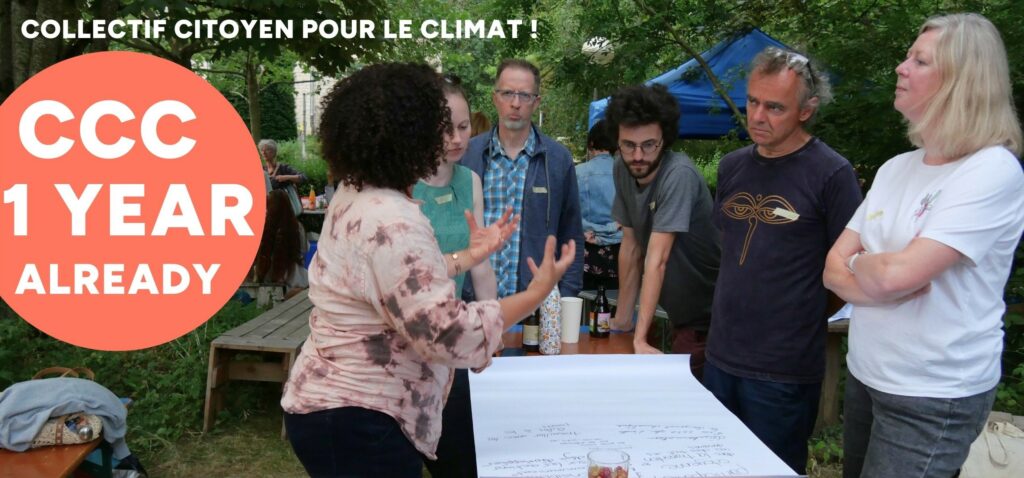
The thematic groups of the Collectif Citoyen pour le Climat will soon be celebrating their one-year anniversary, and all of them already have some nice actions and achievements to their credit. As a reminder, the first meeting was on December 3rd 2022, and on June 29th we all got together at the Breedewee Garden in Esch to discuss what each group is doing, to celebrate our collective and to reflect on its future (picture). There are many ideas on how to show the general public what the different groups are doing and how to join them, but also to improve communication between the groups, to offer joint mobilization actions and to move forward in the direction of citizen participation in the construction of public policies. Now is the moment to give ourselves the means to make them happen!
In order to develop concrete proposals for the future of the Collectif Citoyen pour le Climat, and to propose a sustainable, co-managed (or even self-managed!) mode of operation, we are launching a discussion with representatives of the various groups, the board of the association and Transition Minett employees. The aim is to come up with concrete proposals for the entire Collectif Citoyen pour le Climat (inter-group and external communications / joint mobilization and awareness-raising actions…) and a proposal for overall governance.
We will then validate these proposals and their implementation at a major assembly next year. If you would like to join the Collectif Citoyen pour le Climat, please contact us (contact(@)transition-minett.lu).
Focus on:
With the code of conduct of FACILITEC’s Cybern’ethique workshop in place, the group of users of the workshop was able to carry out numerous individual and group projects throughout the summer.
With the start of the new school year, new opening hours have been introduced, with openings on Monday and Thursday until 8pm, the last Sunday of the month still being open from10am to 5pm (next November 26). So no more excuses: come and borrow tools, carry out your projects and join our DIY community!
Contact: atelier(@)facilitec.lu
The Zero Waste group visited Minett Kompost and Sivec over the summer, then organized an awareness-raising and waste-picking action in Esch to talk about the problem of littering, in collaboration with Serve the City. In partnership with Foodsharing Luxembourg, the group organized a meal with rescued food, in a cheerful and anti-waste atmosphere, at the end of October.
Would you like to join us? Contact us! yasmin(@)transition-minett.lu
The Collectif Citoyen pour le Climat also includes the Culture et Transition – The Art’ivists group, the Active Mobility group, the Construction in Transition group, the bio and local food basket group, the Eco-feminism group, the Esch Community Gardens group, the bio, local… and Vegan Food group, the Nonnewisen neighborhood group, the Lallange neighborhood Group. For news and contact information on each group, click here: https://www.transition-minett.lu/en/the-ccc-contact/
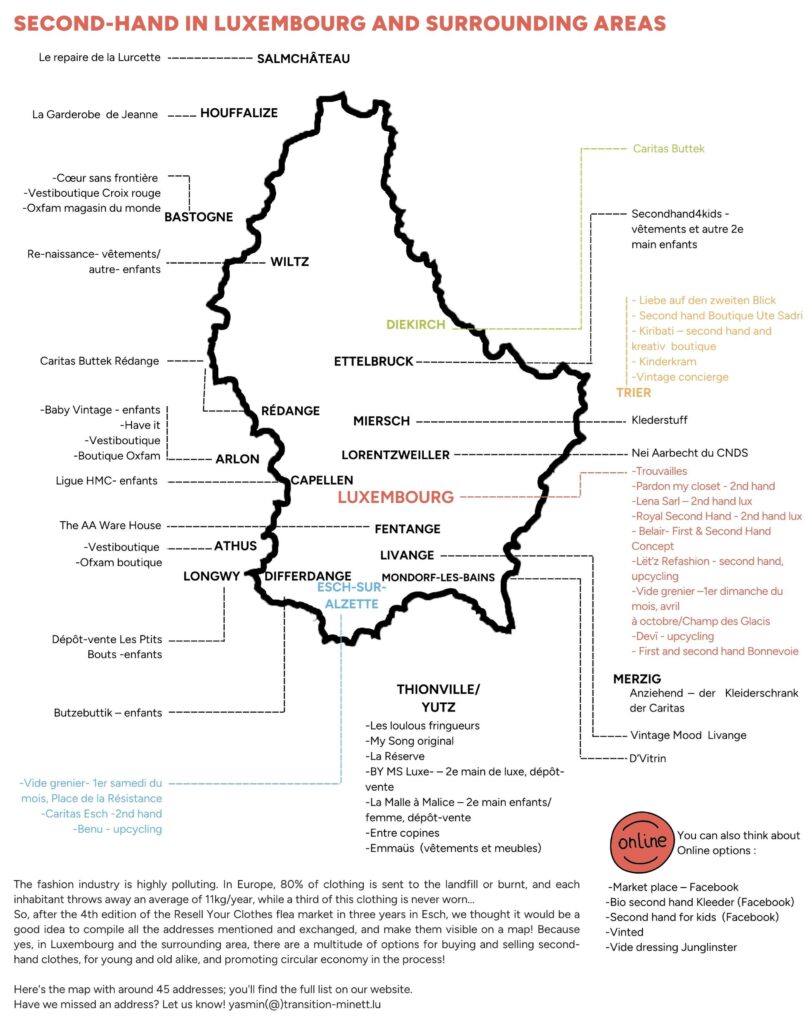
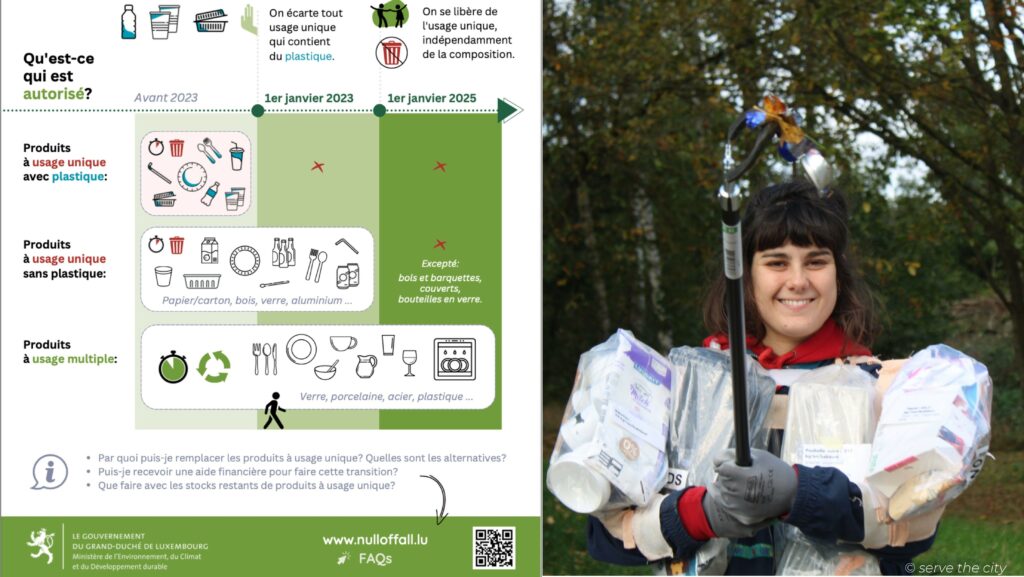
In 2019, Luxembourg launched the “Null Offall Lëtzebuerg” initiative. This strategy has four components: protecting soil and water / making better use of our objects / packaging sensibly / sustainable construction.
Since January 1, 2023, single-use plastic objects have been banned in catering for meals consumed on site, but objects made of cardboard, paper or wood are still accepted. As of January 2025, no single-use objects will be allowed in catering (and public events) for takeaway and on-site consumption. This two-year transitional period should enable all parties involved to find appropriate solutions.
Several solutions already exist in Luxembourg. The www.greenevents.lu and https://nulloffall.lu/ websites offer plenty of tips, including a list of mobile dishwashers, and with ECOBOX and Luloop, you already have reusable containers, cutlery and cups to offer.
To encourage bulk sales, fruit and vegetables sold in quantities of less than 1.5 kg may no longer be packaged in plastic as of July 2023.
By the way, from November 18 to 26, it’s European Waste Reduction Week, shall we take the challenge on together? The aim of the week is to promote existing initiatives and take action to raise awareness. Join us for a Zero Waste challenge!
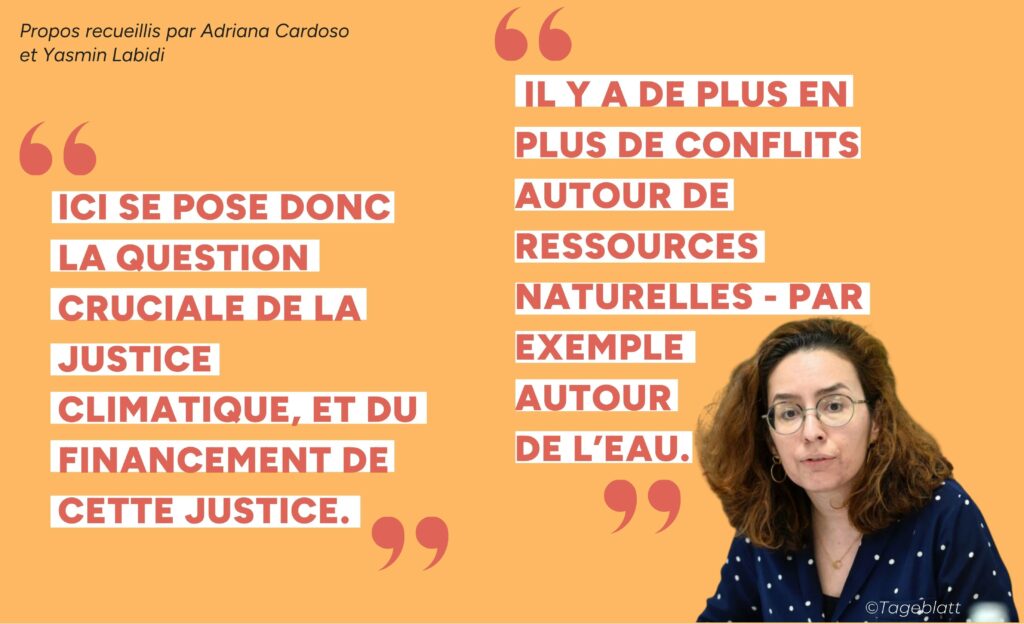
Interview by Adriana Cardoso and Yasmin Labidi
Thousands of climate displaced people in Belgium, Germany and France in 2021 and 2022 ; yes, climate change is also a concern here.
Luxembourg is one of the richest countries in the world; it is also proportionally one of the biggest emitters of CO2 emissions, and therefore responsible for climate climate.
In the context of December 10th (International Human Rights Day), we spoke to Antoniya Argirova (climate justice campaigner at Greenpeace Luxembourg) about climate change and its impact on human rights, with a focus on Internally Displaced People*- IDPs.
Transition Minett : What human rights are affected by climate change ?
Antoniya Argirova : Climate change has wide consequences, touching economic, social and cultural rights, as well as civil and political rights. To illustrate this, we can mention, for example, the complaint launched before the European Court of Human Rights (ECHR) by six young Portuguese citizens following the intense forest fires in Portugal in 2017, which forced residents to flee. The young citizens are suing 33 countries for climate change inaction. Climate change is having a serious impact on people’s lives – young people unable to continue their studies, people endangered, losing their homes, their land, their health deteriorating…
Climate change is also a catalyst for armed conflict. There are more and more conflicts over natural resources – water, for example. This raises the question of the protection of civilians.
Transition Minett : What is the impact of climate change on migratory flows ?
The Internal Displacement Monitoring Centre (IDMC) is an organization that takes an annual census of the number of people displaced by armed conflict and/or climate change. In 2021, there were 32 million people displaced by climate-related disasters worldwide.
It should be noted that the countries most affected by natural disasters are developing countries or those of the Global South – and at the same time, these are the countries least responsible for climate disruption (7 out of 10 of the worst-affected countries were island nations). This raises the crucial question of climate justice, and how to finance it.
Transition Minett : And in Europe ? Can we talk about of climate internally displaced people ?
Yes, we’re talking about IDPs in Europe. We have the figures: in 2021, following the floods, there were 16,000 internally displaced people in Germany and 16,000 in Belgium. In 2022, in France, there were 45,000.
…
Read the rest of the article on our blog!
More recently, flooding in Greece and southern Europe has also had serious consequences. Before much longer, coastal countries will also be affected by rising sea levels.
Transition Minett : Does Greenpeace have specific actions on the subject
Greenpeace International is increasingly active in the field of climate justice, directly or indirectly, supporting private individuals or associations who file lawsuits (for example, by providing legal advice or mobilizing its legal experts). Legal action is one way of influencing future climate policies. Unfortunately, governments are not respecting the commitments announced at the Paris Agreement. That’s why citizens are taking legal action, because today it’s the only way to hold governments accountable for their commitments.
A good example of this is provided by the Elders for Climate Protection Switzerland (https://ainees-climat.ch/), who have also brought a case before the European Court of Human Rights to hold the Swiss state accountable for its climate inaction. The decisions of the two cases before the Court (Portugal and Switzerland) will be handed down in 2024, and will have consequences, since if the decision is positive, it will create legal precedent that will also concern Luxembourg.
Greenpeace is keeping a close eye on these cases, and in the event of a positive decision will follow up to ensure that governments change their policies.
Transition Minett : Could you talk about the COP 28 and what is at stake?
Greenpeace International will be present at COP 28 (November 30th to December 12th). One of the main questions is : how to finance losses and damage in the territories that will be most affected by climate change, and in areas that will be made uninhabitable? How can we help those who will have to leave? The countries responsible should help people to settle elsewhere. But that’s the big question: how are we going to finance these actions?
In our view, the countries with the greatest historical responsibility (i.e. those who have emitted the most CO2) should contribute the most. The companies with the highest emissions also need to pay their fair share, bearing in mind that in recent years, these companies have made record profits: in 2022, for example, Total made 20 billion euros, Shell 40 billion dollars, the biggest profits in their history. Greenpeace believes that part of this profit should go to support the response to the climate emergency, for example by helping the climate IDPs.
More and more citizens are taking legal action against companies for the pollution they cause and the consequences on human rights, human health and the environment. More and more of these complaints are succeeding. There were 17 new lawsuits in 2022 against multinationals linked to climate disruption, brought by civil society organizations or private individuals (polluter-pays principle cases). These cases aim to obtain losses and damages for the consequences experienced, and confirm the importance of the issue of climate justice.
*Climate Internally Displaced People (IDPs): people forced to move within their own country as a result of natural disasters/environmental changes linked to climate disruption. A climate refugee moves outside his or her country for the same reasons.
August 2nd, 2023. That’s the day on which human consumption of natural resources exceeds the planet’s capacity to reproduce them. For Luxembourg, it’s already February 14th! What can we do about it?
One obvious answer is to make better use of existing resources and reduce the need for new ones as much as possible. This strategy is all the more interesting for Luxembourg, which has very few natural resources.
To tackle this issue – and thus respond to the socio-economic and environmental challenges we face today- a new approach is becoming increasingly prevalent: the idea of moving from a linear economy (the current system) to a circular economy.
Luxembourg has already been thinking about moving to a circular economy since 2014. This process has so far resulted in the adoption of a “circular economy strategy for Luxembourg” in 2021 and a “zero waste strategy” in 2022 (Null Offall Lëtzebuerg).
According to this national strategy, Circular Economy is a system of production and exchange of goods and services which adopts a holistic approach to the management of stocks and flows of materials and energy, taking into account the regenerative capacities of our planet and integrating aspects of human well-being.
Clearly, this definition refers to what is written at the beginning of this text. The idea is to design the product to avoid as much waste as possible, to ensure a long life – preferably shared and multi-purposed – and then to repair or even recondition the product before recycling or eliminating it at the end of its life. To illustrate this more concretely and in more common terms, we can also talk about the 5Rs: refuse, reduce, reuse, recycle and return to the earth (see diagram opposite).
Circular Economy can also increasingly be found at a municipal level. Our main partner, the City of Esch, signed the “Circular Cities Declaration” in 2022, a network of European “circular cities”, i.e. cities that have chosen the circular economy path to limit the use of and impact on natural resources.
Looking at Esch, there are many actors who have been working on circular economy projects for years, both on the public side (City of Esch, SIVEC resource center, etc.) and on the side of civil society (BENU Village, CIGL Esch, Transition Minett, etc.).
—
Simplified illustration of Circular Economy ( © Caroline Holz)
Yasmin Labidi, for Transition Minett
in co-conception with Caroline Holz
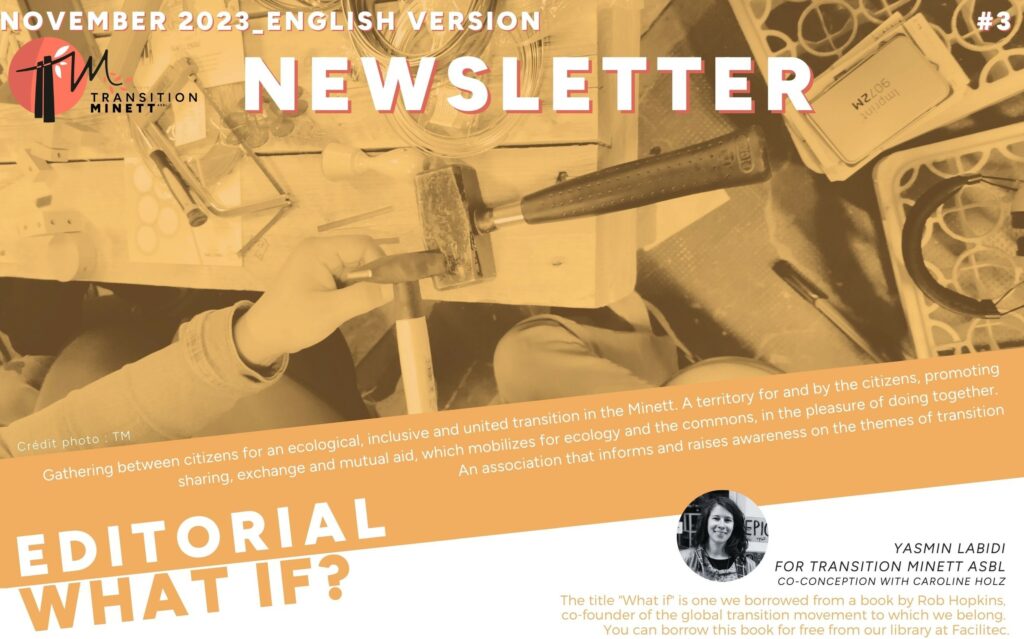
Do you also drive to the office in the morning and find yourself in endless traffic jams, rush to grab a coffee and take the paper cup which is supposedly recyclable-but-in-fact-no, then at lunchtime you eat a pizza and throw the box full of oil in the paper-oops-no, in the black garbage bin, then you grumble because your pen is at the end of its life and can’t be refilled.
The weekend, you still have to buy groceries (the quickest way is to go to the supermarket), find school supplies and new clothes for the kids in town, stop to buy a game, then books (it’s winter, you’ve got to keep them busy); since you’ve taken up sports again, all your pants fall down and you go to the shop, spend €50 on a pair of new, poor-quality jeans that you know will only last 18 months. You need an outfit for your cousin’s wedding next month, and you’d like to wear something other than the usual cocktail dress or suit. And goodness, you can’t find the power drill since the move and the shelf has been waiting for 3 months to be assembled, so you’re going to buy a new drill; and then the toaster has a faulty contact, so you can’t start it – the warranty expired 3 months ago, of course… On Sunday, you take your car to go out for a walk in the woods, and forget all about it.
And in the end, who takes down the paper to recycle, the black bin, the Varlorlux, the old clothes to the container, tries to tidy the rooms full with the kid’s thousands of games and books, takes care of the car maintenance and passes by the waste collection facility? It’s you, again.
What if…
What if our society was organized around sharing rather than owning? What if we encouraged reuse, repair and second-hand?
It would surely cost us less, financially, energy-wise and in time lost running errands.
Just imagine…
In the morning, taking public transportation that works, that’s on time, fast, with a seat. Carrying last night’s mug in your bag and returning it to receive your coffee in a fresh mug. Stopping at the kiosk down the street to buy a refill for your pen. Taking your pizza in the box provided by the restaurant owner and putting it in a return container next to the office.
Receiving your groceries in bulk at your doorstep and going to the farmer’s market on Saturday morning or a weekday evening. Having a local parent/resident group where you can exchange clothes, school supplies, games and books according to needs and ages, with why not a give-box in the neighborhood; having a game library in the area and also a large second-hand clothing store. A well-stocked library for all ages. Easy-to-rent clothes for special occasions.
Being able to borrow the drill for the weekend free of charge and then going to a repair-café to fix the toaster. Daring to have those pants that are falling down fixed without being afraid of the price. Getting into a spontaneously-rented car on Sunday morning, being able to open it by phone, park it and then drive home easily.
In truth, most of these solutions already exist, but on a small scale! However, they remain little-known to the general public, because they are insufficiently promoted, and changing habits takes time. A big part of our job is to talk about the circular economy solutions that exist, support them and offer them at the local level (we will tell you more about them in this issue). Because if the circular economy means Reuse, Repair, Share, Reduce, then we’re right in the middle of it at Transition Minett!
For those worried about the state of the job market, the International Labor Organization assures us: circular economy could create 7 to 8 million jobs by 2030!
In Luxembourg, we still have some way to go: we have the highest car ownership rate in Europe (696/1,000 inhabitant) and we are the 3rd biggest producer of waste (790 kg/year/inhabitant).
In the EU, too, there’s room for improvement: on average, our cell phones are only used for 2 years; we throw away an average of 11 kg of textiles per person per year, 87% of which is incinerated or sent to the landfill; finally, we use 150 kg of plastic per year (twice the world average). By the way, November 18 to 26 is European Waste Reduction Week, so will you join us in taking up the challenge of using reusable containers?
Neste episódio, Yasmin Labidi, juntamente com Karine Paris, Marine Henry e Daniel Waxweiler, discute a produção e o consumo de alimentos no Luxemburgo. Karine Paris é coordenadora do projecto de hortas urbanas do CELL e fala sobre o projecto Mesa – Casa de Transição. Marine Henry é coordenadora do projecto Transition Days no CELL e colaboradora da Alter COOP- Cooperativa alimentar. Daniel Waxweiler está envolvido no movimento de transição no Luxemburgo há muito tempo e é co-fundador do projecto “Foodsharing Luxembourg”.

In this episode, Yasmin Labidi, together with Karine Paris, Marine Henry and Daniel Waxweiler, discusses the theme of food production and consumption in Luxembourg. Karine Paris is coordinator of the Urban gardening project at CELL and she talks about the project of La Mesa, the Transition House. Marine Henry is coordinator of the Transition Days project at CELL and a cooperator at Alter COOP, which recently opened its doors. Daniel Waxweiler has long been involved in the transition movement in Luxembourg and is notably co-founder of the “Foodsharing Luxembourg” project.